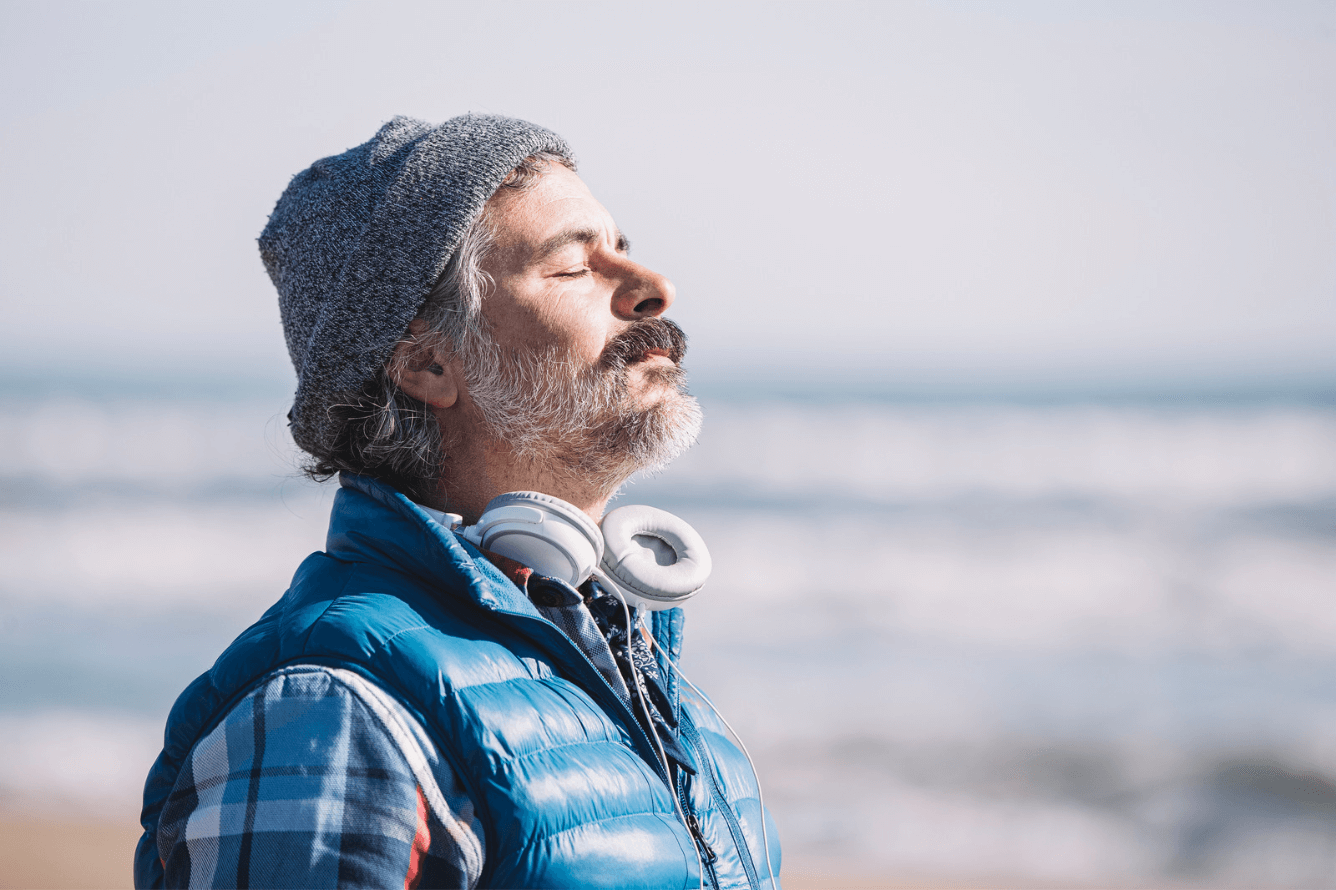
Did you know that your breathing technique could be impacting you on every level when it comes to your health? That's right, our breathing techniques have been under scrutiny recently, and the jury has come back with their decision. While both methods of breathing are effective in getting oxygen to the lungs, nose breathing is considered more efficient, healthier, and more apt to create patterns that contribute to overall wellness than mouth breathing.
If one method of breathing is clearly better for your health and wellness, why wouldn't you start doing it?
Studies have shown that nose breathing provides more oxygen than mouth breathing and may help protect individuals from infections. The passages in the nose are specifically designed to humidify the air you breathe, whereas the mouth does not have such passages.
This removes dust and allergens, boosts your oxygen uptake, and humidifies the air you breathe. In contrast, mouth breathing sends whatever is in the air directly into your lungs, making it easier for harmful particles to enter the body. Nose breathing generally provides more oxygen than mouth breathing and may help protect from infections.
Excessive mouth breathing is typically the result of blockages in the nasal passages and is associated with dental and health problems. While mouth breathing may be necessary when a person has cold or other respiratory issues, you should breathe through the nose whenever possible.
Let's explore mouth breathing vs nose breathing, the possible benefits and drawbacks of each, and how to switch it up from mouth breathing to nose breathing for better health.
Mouth Breathing Blues
Mouth breathing has long been considered a bit of a cultural faux pas, but in reality, pervasive mouth breathing is more of a condition. While mouth breathing is normal during heavy exercise, persistent mouth breathing can have negative effects on the body.
According to Dr. Michael Gelb, a clinical professor at the New York University College of Dentistry, "Mouth breathing can cause poor sleep and poor breathing patterns, which can lead to a variety of health problems, including sleep apnea, fatigue, and a weakened immune system" (source: Verywell Health).
Causes of Mouth Breathing
Mouth breathing can be caused by a variety of factors, including:
- Nasal congestion: When the nasal passages are blocked due to allergies, sinus infections, or other conditions, breathing through the nose becomes difficult, and mouth breathing becomes necessary.
- Enlarged tonsils or adenoids: These structures can obstruct the airway, making it difficult to breathe through the nose.
- Deviated septum: A deviated septum is a condition where the nasal septum, the thin wall between the nostrils, is displaced to one side, making it difficult to breathe through one or both nostrils.
- Habitual mouth breathing: Some people develop the habit of breathing through their mouth, which can lead to chronic mouth breathing.
Effects of Mouth Breathing on Health
Sustained mouth breathing can create health issues ranging from hygienically challenging to heath-compromising. Here are some:
- Dry mouth: Breathing through the mouth can cause dryness in the mouth, leading to bad breath and an increased risk of tooth decay.
- Sleep problems: Mouth breathing during sleep can lead to snoring, sleep apnea, and poor sleep quality.
- Dental problems: Mouth breathing can cause changes in the position of the teeth and the shape of the jaw, leading to malocclusion and other dental problems.
- Respiratory problems: Mouth breathing can lead to respiratory infections, asthma, and other respiratory problems.
Treatment Options for Mouth Breathing
Treatment options for mouth breathing depend on the underlying cause of the condition. Some treatment options include:
- Nasal decongestants: If nasal congestion is the cause of mouth breathing, nasal decongestants can help relieve the congestion and allow for easier breathing through the nose.
- Surgery: If enlarged tonsils or adenoids or a deviated septum is the cause of mouth breathing, surgery may be necessary to correct the problem.
- Orthodontic treatment: If mouth breathing has caused dental problems, orthodontic treatment may be necessary to correct the malocclusion.
Of course, mouth breathing may also be a learned behavior that can be unlearned. Breathing exercises can help train the body to breathe through the nose instead of the mouth.
Nose Breathing

"Breathing through the nose is the natural way to breathe. It helps to filter the air, warm it, and humidify it. It also helps to regulate the heart rate and blood pressure. Mouth breathing, on the other hand, can dry out the airways, increase the risk of infection, and make it difficult to sleep." - Dr. Andrew Weil
Breathing through the nose is the natural way to breathe. It offers several benefits to the body, including better oxygenation, improved lung function, and reduced risk of infections.
In this section, we will explore the benefits of nose breathing, how to improve nose breathing and nose breathing exercises.
Benefits of Nose Breathing
Nose breathing filters, warms, and humidifies the air before it enters the lungs. This helps to remove harmful particles, bacteria, and viruses from the air, reducing the risk of infections.
Nose breathing also helps to improve lung function by increasing the amount of oxygen that is absorbed by the body. This can lead to better overall health, improved athletic performance, and reduced fatigue.
In addition, nose breathing can help to reduce stress and anxiety by activating the parasympathetic nervous system, which is responsible for the "rest and digest" response. This can lead to a feeling of calmness and relaxation, which can be beneficial for people who suffer from anxiety or stress-related disorders.
How to Improve Nose Breathing
For some people, nose breathing may be difficult due to blockages in the nasal passages or other anatomical issues. However, there are several ways to improve nose breathing capacity, including:
- Keeping the nasal passages clear by using a saline nasal spray or neti pot
- Avoiding irritants such as smoke, dust, and pollen
- Maintaining good oral hygiene to prevent infections and inflammation in the mouth and throat
- Practicing good posture to keep the airways open and reduce strain on the respiratory muscles
Nose Breathing Exercises

There are several exercises that can help to improve nose breathing, including:
- Deep breathing exercises, such as diaphragmatic breathing, which can help to strengthen the respiratory muscles and improve lung function
- Alternate nostril breathing, which involves inhaling through one nostril and exhaling through the other, can help to balance the flow of air and improve oxygenation
- Humming, which can help to improve nasal resonance and reduce inflammation in the nasal passages
By practicing these exercises regularly, people can improve their nose breathing and enjoy the many benefits that come with it.
Mouth Breathing vs Nose Breathing
“When we breathe correctly, we have a sufficient amount of carbon dioxide, and our breathing is quiet, controlled, and rhythmic. If we are overbreathing, our breathing is heavy, more intense, and erratic, and we exhale too much carbon dioxide, leaving our body literally gasping for oxygen.”
― Patrick McKeown,
Breathing is an essential function of the human body, and it can be done through the mouth or the nose. While both types of breathing succeed in getting oxygen to the lungs, nose breathing is more efficient and offers several health benefits. Mouth breathing is typically the result of blockages in the nasal passages and is associated with dental and health problems.
Which is Better: Mouth Breathing or Nose Breathing?

Nose breathing is more efficient and offers several health benefits compared to mouth breathing.
Well, I believe we've answered that question. The main point here— nose breathing is generally considered to be far superior to mouth breathing. It offers several health benefits, including improved respiratory health, better sleep quality, and reduced risk of dental problems.
However, there are some situations where mouth breathing may be necessary, such as during exercise or when the nasal passages are blocked due to allergies or illness.
It is essential to pay attention to your breathing habits and seek medical attention if you feel your breathing habits are causing you issues.

